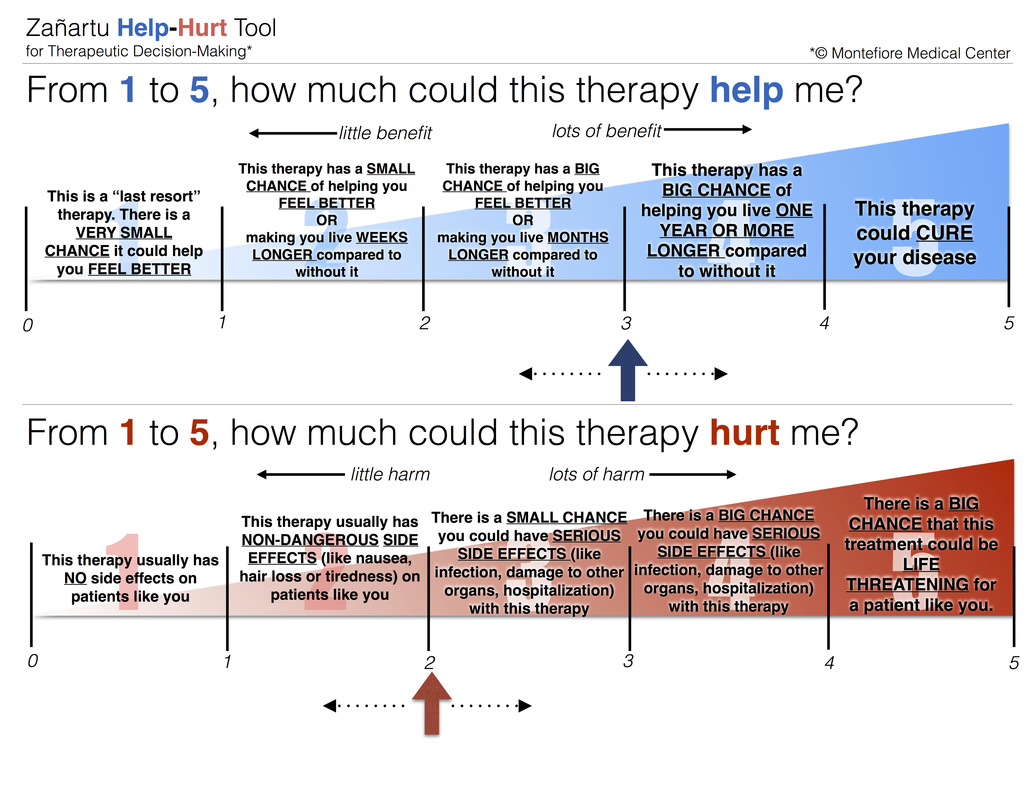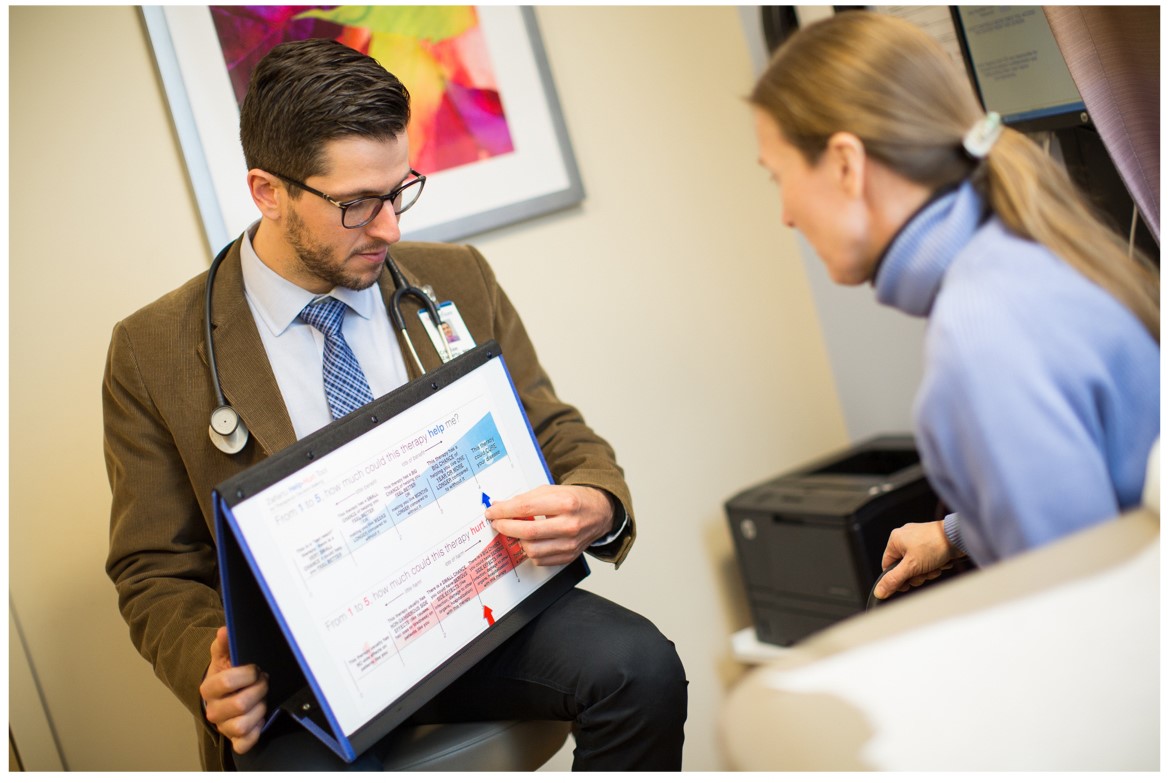Guest Blog: Example of a Case Impacted by the Help-Hurt Tool

Post by Cristian Zanartu, MD
Montefiore Einstein Center for Cancer Care
Bronx, NY
Ms. M is an 81-year-old woman with Stage IV Pancreatic Cancer. She had remained in great health until her recent diagnosis, after which her energy had plummeted and she was spending over half the day in bed. Overwhelmed with the sight of their loved one losing her strength with each passing day, her family had gone into panic. “Chemotherapy has helped so many, right?” “Couldn’t the doctors save her from this cancer?” “We need to try something, doctor!”
The patient herself was detached from the idea of battling the disease: “I have lived a good life,” she would say, and take a passive stance in her illness. This attitude further distressed the family: “it is like she is giving up.” Upon request of the family, an oncologist evaluated the patient and took the time to discuss treatment options. Surgery was no longer an option, and radiotherapy was not going to be particularly useful. The only remaining option was chemotherapy.
Patient and family were in the dark in regards to what chemotherapy really meant. An informative pamphlet on one of the potential chemotherapeutic drugs to be used made things even more confusing. “Nephrotoxicity, neurotoxicity, rash, edema, gastrointestinal bleed…” This family system soon found itself in hours-long lock-down discussions: “chemotherapy is going to make her suffer more!”, “she is not going to give up like this!”, “if not chemotherapy then what?!”, “what if chemotherapy saves her life?!”

The Zanartu Help-Hurt tool, courtesy of Montefiore Medical Center
(click to view full-size)
When the patient and family were presented with the HHT and explained its rationale, one of the relatives’ first reaction was to point at the Help score 5 (“This therapy could cure your disease”) and say: “this one doc, we want this one.” With calm, compassion, and honesty, it was explained to the patient and family, with the graphic example of the HHT, that “cure”-achieving-chemotherapy was not an option. The drug suggested would likely give a Help score of 3 (prolongation of life by a matter of months) and Hurt score of likely 4 (big chance of these serious side effects) since the patient at this point was too debilitated to sustain a strong chemotherapy regimen.
Read the Companion Post
Having cancer is terrifying. Period. Often, well intended-doctors find themselves unable to mitigate this panic…When presented with the contrast of the Help and Hurt scores, the family became more aware of the limited benefit of a course of chemotherapy and the likelihood of side effects. After a week to ponder, family and patient concluded in unison to avoid chemotherapy all together and focus on family time and comfort. None of the family members were left with a sense of “failure” or “abandonment” to their loved one. It was clear to them that they were not saying “no” to a life-saving procedure. They were saying “yes” to their loved one’s autonomy and to a peaceful time together.
About the Author
Cristian Zanartu, M.D.—a palliative medicine specialist at Montefiore Einstein Center for Cancer Care—treats patients at all stages of their disease, providing continuous support and care to help relieve their physical and emotional symptoms, while guiding them and their loved ones as they face complex choices and decisions.
Dr. Zanartu’s full bio can be read on the Montefiore Cancer Center’s website.
Read more about the Help-Hurt Tool at www.helphurttool.com.
The views & opinions expressed in any guest post featured on our site are those of the guest author and do not necessarily reflect the opinions & views of the National Coalition for Cancer Survivorship. Read our blog and comment policies here.



